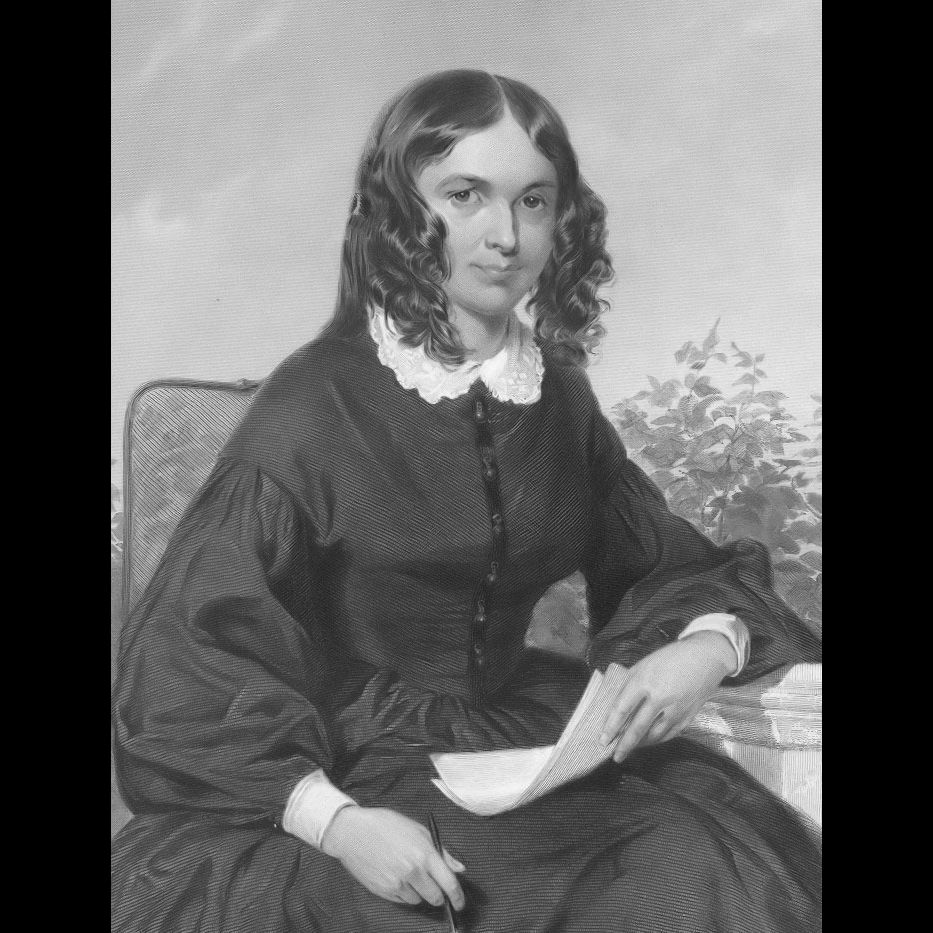Elizabeth Barrett Browning
Born: 1806
Born on March 6, 1806, Elizabeth Barrett Browning was an influential English poet of the Romantic Movement, renowned in Britain and the United States during her lifetime. Browning was raised in England while her father made his wealth from the extensive sugar plantations in Jamaica. From a young age, she immersed herself in literature as often as she could get away from the social rituals of her family. “Books and dreams were what I lived in and domestic life only seemed to buzz gently around, like bees around the grass,” Browning said years later. During her teenage years, Elizabeth taught herself Hebrew to read the Old Testament—her interests later turned to Greek studies. In 1826, at age 20, Browning anonymously published her collection An Essay on Mind and Other Poems. Two years later, her mother passed away, and the gradual abolition of slavery in England and mismanagement of her father’s plantations dwindled the Barrett’s income. In 1832, her father sold their rural estate and moved the family to a coastal town, where Elizabeth published her translation of Prometheus Bound (1833) by the Greek dramatist Aeschylus. In 1844, Browning published a collection titled Poems which gained the attention of poet Robert Browning. The pair exchanged nearly 600 letters over the course of 20 months, culminating in their elopement in 1846; however, Barrett's father firmly opposed the marriage and never spoke with his daughter again. In 1850, Elizabeth published Sonnets from the Portuguese, which were dedicated to her husband and written secretly before her marriage. Elizabeth’s later works were defined by political and social themes, such as her intense sympathy for the struggle for the unification of Italy in Casa Guidi Windows (1848-1851) and Poems Before Congress (1860). Unfortunately, Elizabeth’s constantly weak physical health culminated in her death in Florence, Italy, on June 29, 1861, at 55.
